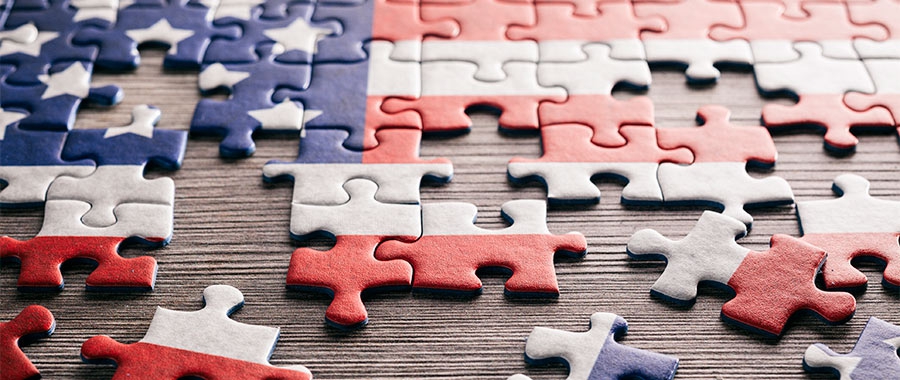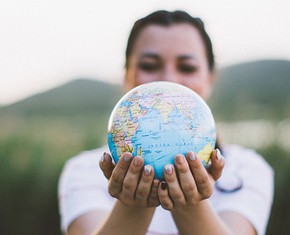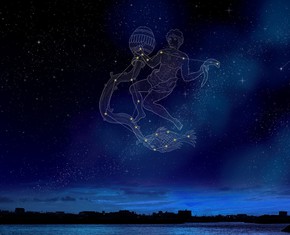The views expressed in our content reflect individual perspectives and do not represent the authoritative views of the Baha'i Faith.
In his book “The Disuniting of America: Reflections on a Multicultural Society,” the historian Arthur Schlesinger Jr. wrote that “a cult of ethnicity” endangers the unity of pluralistic societies.
The double Pulitzer Prize-winning author described multiculturalists as “very often ethnocentric separatists who see little in the Western heritage other than Western crimes,” and are intent on “divesting Americans of their sinful European inheritance and seeking redemptive infusions from non-Western cultures.”
From a Baha’i perspective, multiculturalism — defined as ethnic and cultural pluralism — represents progress in the world, but not the ultimate state of human society. The Universal House of Justice, the international governing body of the Baha’i Faith, wrote in a message to an individual Baha’i on February 13, 1996:
“… the oneness of mankind will not be based on forced assimilation, but upon protection of cultural diversity. At the same time, however, we should beware of inadvertently settling upon a limited model, such as the one sometimes associated in contemporary discourse on multiculturalism. A distinctively Baha’i culture will welcome an infinite diversity in regard to secondary characteristics, but also firmly uphold unity in regard to fundamental principles; thereby achieving a vigorous complementarity.”
America, of course, has often described itself as a “melting pot,” a pluralistic society drawn from different ethnicities, racial groups, cultures and regions, where everyone from every place and tradition comes together and subsumes their original identities to become Americans. In that way, many historians have viewed the “American Experiment” — George Washington’s term, which described a diverse peoples’ first attempt at liberty and self-government — as a successful one.
RELATED: What Does ’Inclusion’ Really Mean?
The American experiment asks whether we can truly create a melting pot that made Americans out of people from everywhere else — a society of immigrants, people with no common ethnic, racial or cultural heritage. It asks whether a disparate, diverse nation — the united states that make up The United States — can function as a single entity. It asks, instead of shared geography or heritage or ethnicity, if a set of noble ideas — democracy, freedom, the pursuit of happiness — can possibly provide the glue that holds a society together.
Along the way, that American experiment and its noble ideas tackled reality by dealing with the big, brutal societal questions: Could we end slavery? Could we give women the vote? Could we accept people from all religions or no religion as true Americans? Could we desegregate? Could we assure civil rights regardless of sexuality? Could we retain our liberty in the face of laissez-faire capitalism? Could we utilize the Earth’s bountiful resources without ruining the environment in the process? Could we decide not to use the huge armies and armaments we built?
These hard questions, all taken on by America — and many of them not yet completely answered or resolved — often obscure the fact that the American experiment has actually worked in several basic ways. For almost two and a half centuries, the United States has provided its citizens with mostly peaceful conditions inside its borders; with an economic system that has produced general prosperity; and with a political system that has largely enfranchised an increasing number and variety of people. Many problems persist, but the United States continues to face immigration debates precisely because such a large number of the world’s people want to live there.
Is America a Melting Pot or Salad Bowl?
Now, though, America and many more of the world’s cultures face new challenges — and the idea of the melting pot has morphed into the concept of a salad bowl, with the task of forming a diverse cultural mosaic instead of a homogeneous culture. The ingredients in a melting pot usually fuse together, but the ingredients in a salad bowl retain their individuality and flavor. Rather than losing the unique cultural, racial and religious identities of their populations, pluralist countries now have to confront the dueling concepts of assimilation and identity, and respond to differences differently than before.
RELATED: When Baha’is Confront Racism in America
In some ways, the Universal House of Justice wrote in 1998, this global “cultural mosaic” development could serve as the precursor to a more unified planet:
“The [Baha’i] Faith seeks to maintain cultural diversity while promoting the unity of all peoples. Indeed, such diversity will enrich the tapestry of human life in a peaceful world society.”
So rather than choosing between assimilation or multiculturalism, the Baha’i teachings ask everyone to retain the unique beauty of their own culture — but also practice a greater, higher, all-inclusive unity:
“Let there be no misgivings as to the animating purpose of the world-wide Law of Baha’u’llah …. It does not ignore, nor does it attempt to suppress, the diversity of ethnical origins, of climate, of history, of language and tradition, of thought and habit, that differentiate the peoples and nations of the world …. Its watchword is unity in diversity such as Abdu’l-Baha Himself has explained:
’Consider the flowers of a garden …. Diversity of hues, form and shape enricheth and adorneth the garden, and heighteneth the effect thereof ….’”
So far, one society on the face of the Earth has managed to successfully incorporate a wide array of cultures, races and traditions into a single, unified, harmonious global entity. That society — the worldwide Baha’i community — exists on every continent and in every country, among all cultures, and across the broad range of the world’s belief systems. With its teachings of unity and harmony, Baha’u’llah’s message has brought together the most diverse group of humanity ever assembled under one banner.

















Comments
Sign in or create an account
Continue with Googleor